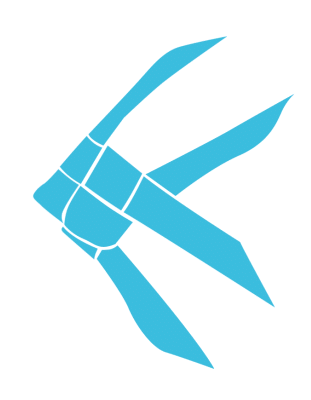A Movement Emerges
In the mid-1990s, scores of community-based projects were underway throughout Southeast Asia and the Pacific. While communities were increasingly being engaged, the approaches were largely top down and largely led by outside scientists with little knowledge of local communities, cultures and priorities. The end result was little benefits for the resources and the people who depended on them.
Meanwhile, a new movement was emerging. Three sites that were part of a Biodiversity Conservation Network project (supported by the Biodiversity Support Program to conduct an assessment of economic incentives for natural resource conservation) focused on building community involvement in monitoring and evaluating marine resources. These included sites in Fiji, West Papau India and the Solomons, which would later become the founding sites of the LMMA Network.
A Network is Born
In the late 1990s, as more evidence grew about both the need and effectiveness of helping communities take the lead, staff from various organisations working throughout Southeast Asia and the Pacific also recognised that although there was increasing number of initiatives involving community-based marine conservation taking place – and that many of them overlapped – they were not effectively sharing resources or information, and thus not learning as much as they could from each others’ successes and shortcomings.
These were the seeds for the LMMA Network, as these practitioners began advocating bringing the growing projects together to learn collectively and improve their outcomes and conservation impact.
By August 2000, more than 100 conservation practitioners from 20 projects in 12 countries across Southeast Asia and the Pacific gathered to discuss how to work and learn together. At that August meeting, a key focus was the factors they believed would influence the success or failure of their projects, and how to measure success, so best practices could be shared and scaled-up. Out of this, the LMMA Network was born.
In October 2000, most of the original participants reassembled during the 9th International Coral Reef Symposium in Bali and formally and publicly launched the LMMA Network.
By 2001, a detailed framework outlining how LMMA Network members would collect and share information was developed, reviewed and refined by LMMA Network members and external experts.
During 2001 and 2002, LMMA members began documenting how their involvement in LMMA Network activities has led to measurable improvements in the effectiveness of their practices and the level of conservation impact being achieved. This culminated in the Fiji-based members of the LMMA Network being awarded the highly-coveted “Equator Initiative Prize” of the United Nations at the 2002 World Summit on Sustainable Development in Johannesburg.
In 2003, LMMA Network members began the active process of periodically sharing information gathered from participating sites with one another and collectively learning from the pooled results. Since, the LMMA Network has won numerous awards and continued to grow and evolve to changing needs and challenges. By 2009, the LMMA Network was supporting 7 national networks in Fiji, Solomon Islands, Palau, Micronesia, Papua New Guinea, Indonesia and Philippines and saw the number of LMMAs increase from a handful in 2000 to hundreds in 2009.
For many years, the LMMA Network was not a legal registered entity, but a thriving partnership between practitioners at all levels bound by a common vision and social contract. But as challenges increased, in 2017, the LMMA Network transitioned into a legal entity (LMMA Network International), to better support and advocate for local communities and today is positioned to support thriving country networks and help partners best advocate for community approaches and scale-up efforts to meet new challenges, including climate change.
LMMA Today
Today, LMMA supports Networks in Indonesia, the Philippines, Papua New Guinea, Palau, Pohnpei, Fiji and the Solomon Islands, and engages with more than 15 other countries in the Indo Pacific. Increasingly, the LMMA Network is sharing its lessons globally, with increased interest not only in improved conservation outcomes, but also with an increased focus on social justice and the rights of traditional resource owners.

Get Updates via Email
Subscribe to our e-newsletter to keep up to date with latest news and research on community-based marine resource management.

